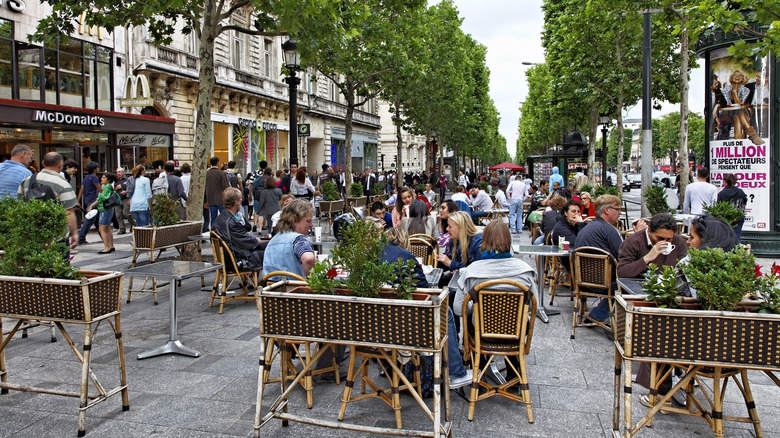Packing Tips And Hacks
Jenna Busch
If you’ve traveled internationally to a major city, you’ve probably hit some of the unmissable tourist destinations like the Louvre in Paris, the Great Wall of China, the Sydney Opera House, the Pyramids of Giza, or the Christ the Redeemer statue in Rio de Janeiro. You’ve probably also waited in long lines and dealt with crowds that could test the patience of a saint. And you may have accepted crazy lines as the price you have to pay for seeing wonderful things when you travel, especially when you’re not opting into more underrated tourist destinations.
However, there’s one truly great travel hack that won’t cost you a cent and can help you avoid crowds and lines. Though it’s logical, you probably haven’t thought to do it before: So get ready for an “ah-ha” moment where you realize you should have been doing this all along. Travel blogger Nomadic Matt — the New York Times best-selling author of “How to Travel the World on $50 a Day” and “Ten Years a Nomad” — posted some easy tricks on his site NomadicMatt that have us rethinking our travel schedules.
Here’s the trick for getting around crowds at historical sites

Radu Razvan/Shutterstock
There’s nothing worse than waiting in line when you’ve been walking around for hours and dealing with jet lag. So the best use of your time is visiting popular tourist attractions during lunchtime. As Nomadic Matt says, that’s when all the tour groups and busses full of travelers head out to have their midday meals. The likelihood is that you’re going to have much freer rein when everyone else is having a croissant and a glass of wine on the Champs Élysées.
He also suggests visiting attractions very early, very late, or during other mealtimes. You might as well roll with your weird jet lag schedule and get out there to see some beautiful things. In addition, he mentions not eating close to any of these popular destinations because they’re priced up for tourists. (Make sure to avoid menus written in several languages for this reason.) He says he walks no less than five blocks from the site to get food because it’s more likely to be off the beaten path for tourists. Heck, grab an lunch early five blocks away, and by the time you walk back, everyone else will be ordering theirs. By the way, the same concept applies to wildlife parks and zoos when it’s raining, since comparatively few people show up on days like that. (We mean when it’s lightly raining, mind you. Please don’t go out in an electrical storm.)
Other things you can do

Martinedoucet/Getty Images
So what do you do about those super popular attractions that draw hordes of people in, no matter what time of day it is? One suggestion is to booking your major activities online beforehand, since you might find discounted rates versus walk-in prices. Nomadic Matt also mentioned that using a credit card for this online purchase is going to give you “some extra protection as well as travel points.”
Book ahead so you don’t have to wait as long, but keep our tip on time of day in mind when you do. If a time slot happens to be available around a meal time or around when the site opens or closes, so much the better. Weekdays are also likely to be better than Fridays and weekends, especially when school is in session. (It’s a smart move to keep an eye on school vacations and holidays in the country you’re visiting.)
Finally, it’s worth looking into some of the lesser-known historical sites and underrated tourist destinations if you’re really crowd-averse. Bon voyage!

